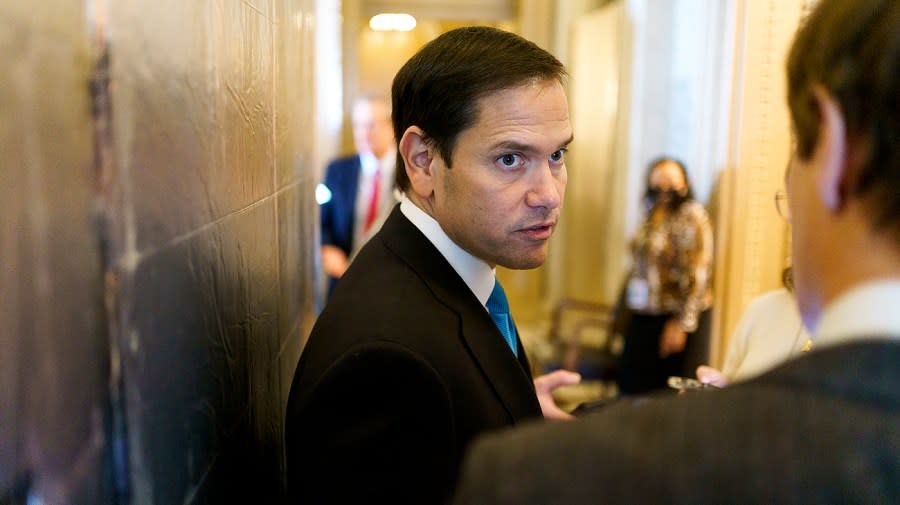Rubio renews push for daylight saving bill ahead of upcoming time change

- Oops!Something went wrong.Please try again later.
Sen. Marco Rubio (R-Fla.) renewed his push to make daylight saving time permanent ahead of this week’s time change.
Rubio’s bill initially passed with unanimous consent in the Senate in March 2022 before later hitting a brick wall in the House. It was reintroduced last year by Rubio as the Sunshine Protection Act of 2023.
Rep. Vern Buchanan (R-Fla.) introduced companion legislation in the House last March.
In a statement Tuesday, Rubio continued his push to irradicate the changing of clocks twice a year.
“We’re ‘springing forward’ but should have never ‘fallen back,’” his statement said. “My Sunshine Protection Act would end this stupid practice of changing our clocks back and forth.”
Daylight saving time will begin March 10 at 2 a.m. local time when clocks will spring forward by one hour. Clocks were set back one hour at the start of standard time on Nov. 5, 2023, at 2 a.m. local time.
If Rubios’ legislation were passed, clocks would change for the last time when daylight saving time begins this weekend. They would not get changed in November, or ever again.
Permanent daylight saving time would result in a later sunrise and later sunset in the winter. Although the legislation received bipartisan support in the Senate, members in the House expressed concern about the impact it could have on areas that rely on tourism and large farming communities.
Rubio’s bill has been read twice and referred to a committee. Buchanan’s bill was referred to a subcommittee shortly after it was introduced.
“With Daylight Saving Time returning on Sunday, we should pass my Sunshine Protection Act to lock the clock and make it permanent,” Rubio posted on X, the platform formerly known as Twitter.
Daylight saving time was initially introduced in the Standard Time Act in 1918, which allowed for more hours in the day to reduce energy costs during World War I.
For the latest news, weather, sports, and streaming video, head to The Hill.

